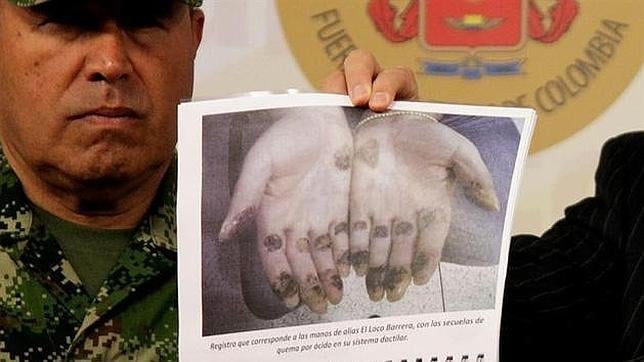As details emerge of the capture of Colombian drug kingpin Daniel “El Loco” Barrera, there are indications that, despite his discussions of a surrender deal with the US, he had little intention of turning himself in.
The day after Loco Barrera was captured in Venezuela, on September 18, Interior and Justice Minister Tareck el Aissami held a news conference to give details of the triumph. The operation had been unfolding since August 6, when Colombian authorities alerted Venezuela to new information on the drug lord’s location, as El Nacional reported. Venezuelan authorities deployed 14 intelligence teams to Caracas and three states, and set up wiretaps on 69 public telephones which Barrera was thought to use to contact his businesses associates and family, as Aissami explained.
They finally tracked down the drug lord when he went out to make a call from one of the monitored lines in San Cristobal, locating him while he was still talking, according to el Aissami.
More details of the capture came from Colombian police chief Jose Roberto Riaño’s press conference in Washington. He said that lately Barrera had only been communicating with his associates via payphones, making it more difficult to locate him, and was keeping a low profile, passing himself off as a rancher while moving from place to place.
Loco Barrera had had extensive facial surgery and lost a lot of weight, and had even attempted to hide his identity by burning off his fingerprints with a frying pan, according to El Tiempo (see photo, above). At the time of his capture, he was carrying a false Colombian ID in the name of Jose Tomas Lucumi Popo.
The fugitive had been staying for the last three months at a guesthouse in San Cristobal called the Posada El Remanso. Staff told El Nacional that they were “surprised” to see Barrera’s photo on television, as “we did not think that he was a capo.” They did not even suspect that their guest was Colombian, as he used an accent that sounded like he came from the Venezuelan state of Zulia. The drug lord was polite to staff and paid big tips, and they discussed the burn marks on his fingertips but did not guess that they were to hide his identity.
In order to avoid attention, Barrera would travel with a female bodyguard who doubled as his driver, reported Semana.
InSight Crime Analysis
Rumors had been circulating for almost a year that Loco Barrera was holding talks about surrendering himself to the US, but it appears that he failed to close the deal in time. A source in the US Drug Enforcement Administration (DEA) told InSight Crime that there were negotiations but that no agreement was reached because the capo put too many conditions on his surrender. A report from El Tiempo in April, meanwhile, said that the process had been derailed by the death of Barrera’s mother.
However, Barrera’s actions over the last few months do not all seem like those of a man about to hand himself in. As well as his extreme security measures, like burning off his fingertips, the drug boss had reportedly been taunting the Colombian police. According to El Tiempo, the kingpin had a message delivered to members of the police force some four months ago, saying that he was in Bogota, and that he was not keeping a low profile.
He had also been traveling from place to place organizing his drug business and visiting family. According to Riaño, since arriving in Venezuela in 2008, Barrera often traveled from his base in San Cristobal to Brazil and Argentina where various of his children lived. In recent months, according to El Tiempo, he had traveled to Africa to oversee drug routes, and then to the Colombian province of Choco. A source told the newspaper that from Choco, on Colombia’s Pacific, he had planned to go to Panama to talk to the DEA and show that he was serious about his surrender, but that he was forced to leave the area when the authorities seized a weapons cache.
However, Barrera will still likely to get the chance to make a deal with US authorities — on September 20, the US formally requested Barrera’s extradition.
Riaño’s comments on the arrest also highlight the international nature of the operation to arrest Barrera. Speaking from Washington, where he oversaw the operation, he revealed that a recent trip to London had been made to finalize the details of Loco Barrera’s capture.
The involvement of UK authorities in particular is significant. Britain has maintained a good relationship with Venezuela on anti-drug missions, even after Hugo Chavez threw the DEA out in 2005. Part of the reason for this is that Loco Barrera made large drug shipments to Europe, either directly from Venezuela or via West Africa, with many flown from Nigeria to Britain.
Venezuela, predictably, trumpeted the capture as a triumph for its drug policies. “History has proved us right,” El Aissami declared, saying that they had caught 91 drug bosses since ejecting the US Drug Enforcement Administration (DEA) in 2005, but not a single one before.

